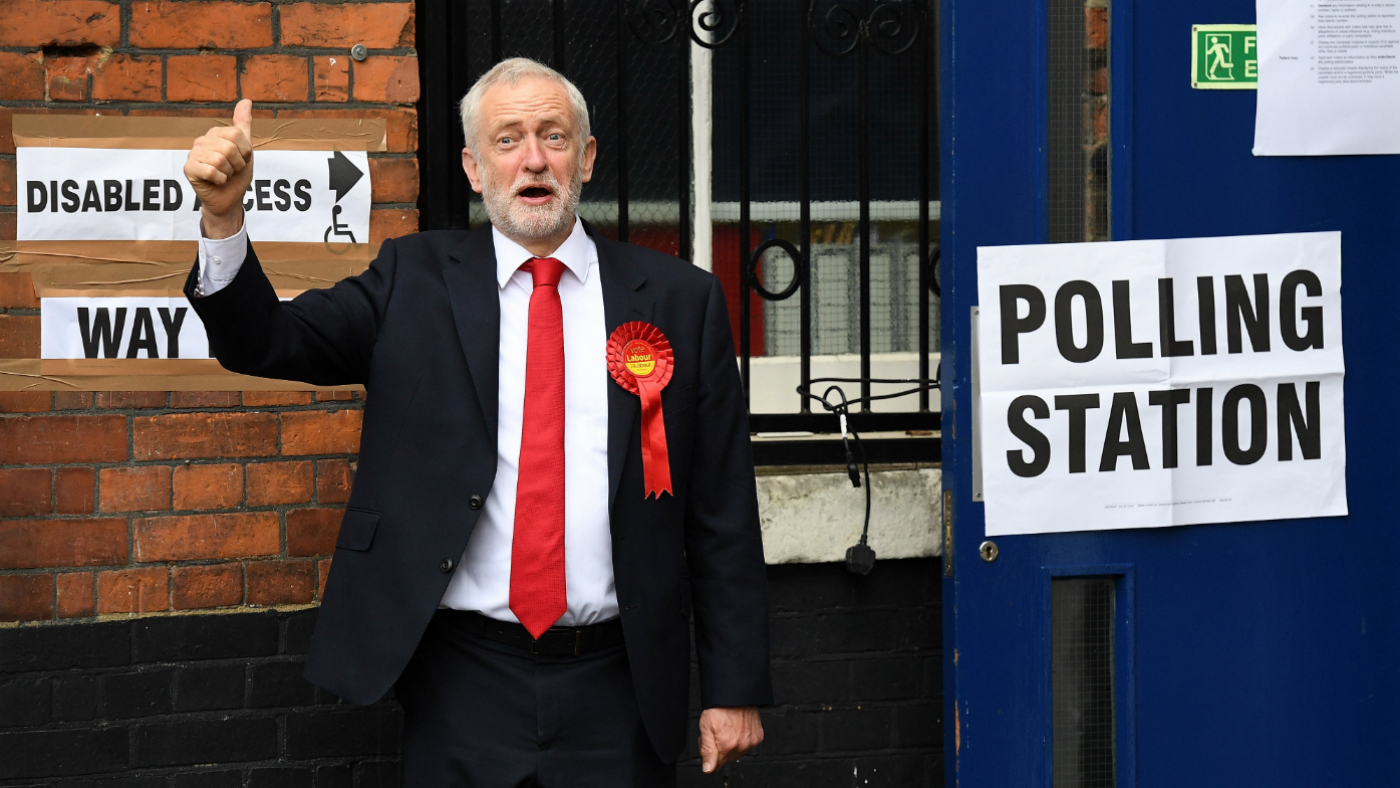Young man pleads guilty to voting for Labour twice in the general election
A Corbyn supporter from Waltham Forest was caught after boasting of having voted twice on Twitter

A free daily email with the biggest news stories of the day – and the best features from TheWeek.com
You are now subscribed
Your newsletter sign-up was successful
A man has pleaded guilty to breaking electoral law by voting for Labour twice in the general election.
Mohammad Zain Qureshi, 21, admitted he had undertaken the illegal practice of double voting, “having registered twice at his home address in Waltham Forest, northeast London, using a minor variation of his name,” says The Independent.
Quereshi used his postal ballot and then voted in person at his local polling station in the constituency of Chingford and Woodford Green.
The Week
Escape your echo chamber. Get the facts behind the news, plus analysis from multiple perspectives.

Sign up for The Week's Free Newsletters
From our morning news briefing to a weekly Good News Newsletter, get the best of The Week delivered directly to your inbox.
From our morning news briefing to a weekly Good News Newsletter, get the best of The Week delivered directly to your inbox.
Iain Duncan Smith, the former Tory leader, “represents the seat, but his majority fell to 2,438 at the snap election in June from 8,386 in 2015,” reports The Times.
After the election, Qureshi was identified as being behind a Twitter post made on polling day in which he declared he had voted twice for Labour.
In the post he said he had voted once by postal vote and a second time in person at the polling station.
The Electoral Commission said in July that it had received more than 1,000 complaints about people voting twice in the general election. It said that it would work with the government to find solutions to minimise the practice and raised the option of forcing people who are lawfully registered at two addresses for council elections to choose which they wish to be registered at for general elections.
A free daily email with the biggest news stories of the day – and the best features from TheWeek.com
“Many of the complaints received by the commission were about students voting twice, once in their home town and once in the seat of their university,” adds The Times.
DI Gail Granville, of the Special Enquiry Team, said: “This result demonstrates the Met’s commitment to ensuring free and fair elections for all of our communities.”
-
 Jeff Bezos: cutting the legs off The Washington Post
Jeff Bezos: cutting the legs off The Washington PostIn the Spotlight A stalwart of American journalism is a shadow of itself after swingeing cuts by its billionaire owner
-
 5 blacked out cartoons about the Epstein file redactions
5 blacked out cartoons about the Epstein file redactionsCartoons Artists take on hidden identities, a censored presidential seal, and more
-
 How Democrats are turning DOJ lemons into partisan lemonade
How Democrats are turning DOJ lemons into partisan lemonadeTODAY’S BIG QUESTION As the Trump administration continues to try — and fail — at indicting its political enemies, Democratic lawmakers have begun seizing the moment for themselves
-
 How corrupt is the UK?
How corrupt is the UK?The Explainer Decline in standards ‘risks becoming a defining feature of our political culture’ as Britain falls to lowest ever score on global index
-
 Reforming the House of Lords
Reforming the House of LordsThe Explainer Keir Starmer’s government regards reform of the House of Lords as ‘long overdue and essential’
-
 How long can Keir Starmer last as Labour leader?
How long can Keir Starmer last as Labour leader?Today's Big Question Pathway to a coup ‘still unclear’ even as potential challengers begin manoeuvring into position
-
 The high street: Britain’s next political battleground?
The high street: Britain’s next political battleground?In the Spotlight Mass closure of shops and influx of organised crime are fuelling voter anger, and offer an opening for Reform UK
-
 Is a Reform-Tory pact becoming more likely?
Is a Reform-Tory pact becoming more likely?Today’s Big Question Nigel Farage’s party is ahead in the polls but still falls well short of a Commons majority, while Conservatives are still losing MPs to Reform
-
 The launch of Your Party: how it could work
The launch of Your Party: how it could workThe Explainer Despite landmark decisions made over the party’s makeup at their first conference, core frustrations are ‘likely to only intensify in the near-future’
-
 What does the fall in net migration mean for the UK?
What does the fall in net migration mean for the UK?Today’s Big Question With Labour and the Tories trying to ‘claim credit’ for lower figures, the ‘underlying picture is far less clear-cut’
-
 Will the public buy Rachel Reeves’s tax rises?
Will the public buy Rachel Reeves’s tax rises?Today’s Big Question The Chancellor refused to rule out tax increases in her televised address, and is set to reverse pledges made in the election manifesto